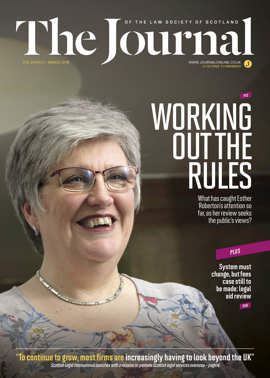Please don't stop the music

On 16 February 2018 researchers from the Universities of Edinburgh, Newcastle and Turku in Finland published the UK’s first live music venue census. The survey found that 29% of small music venues (defined as those with fewer than 350 seats), and 27% of all music venues, have experienced problems with noise complaints from neighbouring developments.
Currently, noise-generating businesses can find that unofficial limits are effectively placed on the noise they can produce when planning permission is granted for noise-sensitive development, most commonly residential development, on neighbouring land. This is because, once planning permission is granted, occupiers of the new development can make noise nuisance complaints about the pre-existing development. “I was there first” isn’t a defence in a noise nuisance investigation.
Live music venues in particular are left feeling that the current system is adversely impacting their businesses, as they end up having to carry out expensive noise mitigation works to reduce their impact on the incoming development, change operations, or close entirely.
In Edinburgh, several venues including Electric Circus and Studio 24 closed after noise nuisance complaints from residents of new development. In Aberdeen, Gilcomston Steps and Downstairs closed after being served with noise abatement notices, and in Glasgow, there were concerns about the future of King Tut’s Wah Wah Hut following proposals for a nearby hotel development. The issue is not unique to Scotland, with impacts across the UK.
As a result of these issues, owners of live music venues across the UK have campaigned for the introduction of the “agent of change” principle in planning policy.
Already recognised?
The agent of change principle attempts to redress the balance by placing the burden on developers seeking planning permission to make sure that the potential impact on pre-existing businesses is suitably mitigated as a prerequisite or as a condition of a development.
Arguably this principle can already be found in planning policy. Scottish Planning Policy (SPP) requires decision-makers to treat the impact of new development on the character and amenity of town and local centres and high streets as a material consideration – with the aim of encouraging “a mix of developments which support their vibrancy, vitality and viability”. Planning Advice Note 1/2011 also advises decision-makers to treat as relevant both the likely level of noise exposure and any reasonably expected increase in noise levels when determining applications for noise-sensitive development next to noise sources.
That already sounds a lot like an agent of change principle. But as examples such as Electric Circus show, the current policies do not appear to be working. Once noise-sensitive development is in place, noise-generating businesses operate at the mercy of noise nuisance complaints.
The agent of change principle requires a broader approach than there is currently at the planning application stage, putting the onus on developers to put forward more sustainable and suitable noise mitigation measures to be built into proposed development at an early stage.
Planning policy cannot prevent noise nuisance complaints, and local authorities will be required to investigate these, but with stronger mitigation measures, it is hoped that the number of complaints will be reduced.
Stronger support
Campaigners therefore welcomed the Scottish Government announcement, also on 16 February 2018, that it plans to embed the agent of change principle expressly in national planning policy, by including it in the next National Planning Framework (NPF) and Scottish Planning Policy.
The drafting of the new NPF and SPP will be taken forward once the current Planning Bill is passed by the Scottish Parliament, and they are expected to be put in place during the course of 2020. In the meantime, the Chief Planner has written to local authorities to remind them of the current implicit policy support for the agent of change principle.
The Chief Planner’s letter and the Scottish Government’s announcement both focused on the agent of change principle in relation to live music venues, and the pressure placed on them by noise nuisance complaints.
It is not clear whether this focus will be reflected in NPF/SPP – making the principle effective only in relation to live music venues – or if the intention is for the agent of change principle to apply also to other noise-generating operations, such as industrial manufacturers. It would seem unfair to give protection to one type of operation (notwithstanding, as the Chief Planner put it, its “cultural and economic contribution to Scotland’s music industry”) without also recognising and protecting the economic contributions of Scotland’s manufacturing industry. Indeed, there is a risk that by referring expressly to live music venues, the protections afforded by existing policy to other types of operation will be perceived as being reduced or weakened.
The Scottish Government’s announcement follows a similar announcement by the UK Government in January 2018 that it will support a proposal for the agent of change principle to be embedded into the new NPPF, which sets out policy for England & Wales.
In this issue
- Borrowings, partner capital and profitability
- GDPR and the cloud
- Employment claims: is the flood still to come?
- Contributory fault: drivers, cyclists and pedestrians
- Reading for pleasure
- Opinion: Derek McCabe
- Book reviews
- Profile: Siobhan Kahmann
- President's column
- Application changes coming
- People on the move
- Seeking a better way
- Beyond borders
- Drawings and profitability
- Enforceable rights or progressive policy goals?
- Conflict theory: it works
- What the liquidators don't tell you
- The office on the move
- Please can we have some more?
- Health check for doctors' lines
- When creditors come first
- Keeping goods exclusive
- Tenant Farming Commissioner: the story so far
- HSE appeals: experts allowed in
- Scottish Solicitors' Discipline Tribunal
- Please don't stop the music
- Broadcasting's business end
- Public policy highlights
- Scam warnings escalate
- This time it's personal
- The game's not a bogey!
- "Only amateurs attack machines; professionals target people"
- When estate agents need client ID
- Banks, client accounts and the Money Laundering Regulations
- Third party rights: what now?
- Ask Ash






